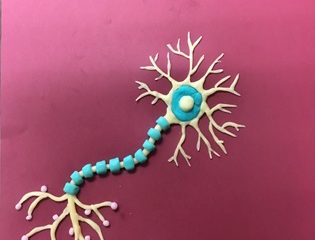
In this book, a remarkable group of scientists, physicians, philosophers, and theologians share profound insights into our deepest questions, and the invisible forces and powerful beliefs that shape us. They will challenge you–and reward you with a richer understanding of who we are, what we share, and what it means. CLICK on the picture above to read about this wonderful new book.
——–
John Cacioppo has written many wonderful books primarily aimed at the academic community; however, a few are written for everyone. “Loneliness” is a theme central to incoming freshman students at Cal Poly which is why I assign it along with my Introductory Psychology text.
His latest effort is far broader and very thought provoking. Here’s how it is described:
“Who are we? What connects us to each other and to the universe? What makes human beings believe in their marriages, friends, families, societies, God?
Men and women have long sought to answer questions like these through religion. For centuries, they have been joined by scientists bringing increasingly powerful new methods and worldviews. Whether scientist or theologian, physician or philosopher, they share a quest: to understand the invisible forces and powerful beliefs that shape human life.
Today, these explorers have much to learn from each other. In the Chicago Social Brain Network, an interdisciplinary group of scholars have come together to exchange ideas across the boundaries that have divided science, religion, and philosophy for far too long.
This book invites you into their conversation and journey. Join them as they explore human nature and human connections: Discover what can be learned from evolutionary analyses and Plato, St. Thomas Aquinas and fMRIs.
-
The social brain and the human journey
Is humanity marching towards cooperation and social resilience? -
Why and how we connect
Our invisible relationships with each other–and our search for trust and meaning -
“You and I” as one: mind and body, individual and society
Human language, neuronal substrates, synchrony, and social coordination -
Belief, connection, and learning
How human beings construct their private experiences of God
I hope you enjoy it!
Laura


